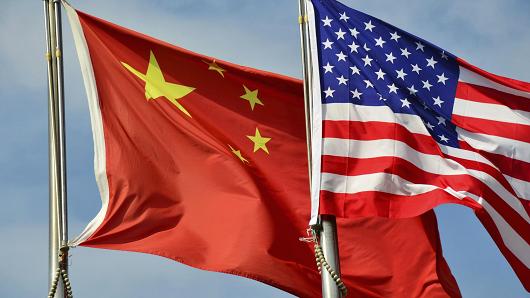Trump tariffs to harm growth: Experts
The wave of tariff hikes proposed by United States President-elect Donald Trump would harm global livelihood and economic growth, while it can't help resolve the country's domestic economic issues, global experts said.
They made the remarks at the 9th China Global Think Tank Innovation Forum held in Beijing on Wednesday, where experts discussed the potential global impact of Trump's return to the White House, especially over his controversial tariff policies.
Jeff Nankivell, president and CEO of the Asia Pacific Foundation of Canada, stated that tariffs are one of the most regressive forms of tax, especially affecting the poorest consumers and members of society.
"Tariffs are going to make life more expensive," Nankivell said, noting the world has already experienced inflationary pressures over the last couple of years due to ongoing conflicts.
"But as we get into a world of tariffs … it's not just expensive at the consumer level, but also for business operations," he emphasized.
He Weiwen, former commercial counselor at the Chinese consulates general in New York and San Francisco, echoed this view, noting that history shows tariffs lead to downturns in global trade.
"Tariffs are reciprocal. When one country imposes them, others retaliate, ultimately affecting everyone," he pointed out.
He cited Bloomberg estimates, which suggest that if the U.S. imposed a 60 percent tariff on China and 10 to 20 percent on other countries, and those countries responded in kind, U.S. imports could drop by 55 percent and exports by 30 to 60 percent.
"In 1930, the U.S. Smoot-Hawley Tariff Act raised tariffs to historic highs, prompting retaliations from the UK, France, Canada and Germany. Over the following three years, U.S. imports fell by 66 percent, exports by 61 percent, and global trade dropped by over 50 percent. This led to the creation of the General Agreement on Tariffs and Trade and later the World Trade Organization."
"If the U.S. were to significantly raise tariffs again, we could see a repeat of these outcomes. To avoid such setbacks, a global free trade system is essential," he said.
Dede Nickerson, strategic adviser at DLN Media, said, "What we need to do in business is to counter the tariffs, because tariffs are not gonna help the American people. They're gonna cause further inflation. A lot of people are (already) struggling to pay their bills. There's a lot of worry and anxiety."
Nankivell echoed this view, saying the structural factors behind the U.S.' current hardship will not be resolved by tariff policy or trade wars. It has to do with savings rates and a structural imbalance in the government borrowing and spending that express themselves in currency valuations, which are major drivers of bilateral deficits and surpluses, he said.
At the geopolitical level, threats of tariffs will only make things more unpredictable, experts said.
Giorgio Cuscito, editorial board member at Limes-Italian Review of Geopolitics, said that tariffs are becoming a geopolitical tool the U.S. would like to use in a very strong way in the next few years.
"The fact that the tariff threats are being wielded on noneconomic issues is an indication that things are going to be hard to predict," Nankivell added.
However, he pointed out that there are still reasons to be optimistic as the rest of the global community will continue to try to advance free trade and economic liberalization, aiming to include people at all levels of society in the benefits of trade.
The forum, hosted by the Beijing-based think tank Center for China and Globalization and the Chinese People's Association for Friendship with Foreign Countries, drew over 200 attendees from about 50 nations.

